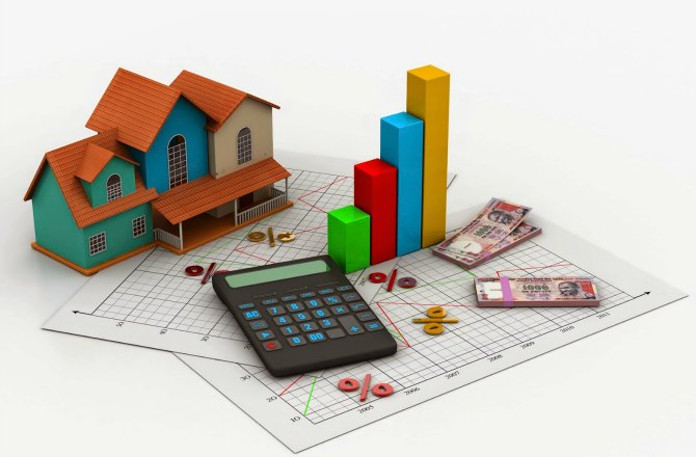Buying a house in India, is a cherished desire for many NRIs. With many luxury housing projects coming up in many metro cities, it is all the more enticing for NRIs to purchase a house in their country of origin. With banks offering loans to NRIs and PIOs at attractive interest rates, it is all easier for you to buy your dream home.
Eligibility to buying a house in India
NRIs and PIOs are permitted to buy a house in India with no restrictions. However, foreign nationals are not permitted to buy any immovable property in India, unless they become ‘Residents’ for tax purpose i.e. they should have stayed in India for a minimum period of 183 days in a financial year.
NRIs need not obtain permission from RBI before buying any property in India, and are free to buy any number of residential properties in India.
What types of properties are available in India?
In India, newly constructed or resale apartments/villas and individual villas/bungalows are available for purchase in both metro and non-metro cities. Each type of property comes with its own advantages and disadvantages.
Newly-constructed/Under-construction Apartments or Villas – Such properties are usually constructed by builders as part of a larger project. There will be multiple residences, common areas and shared amenities in the project/gated community. The units can be bought by paying either the full amount or through construction-linked payments, in case the project is under construction. Under such projects, maintenance of the property is easier, as property management services will be established by the builder. In the past, these have proved to be profitable investments for NRIs. However, the greatest disadvantage of such properties is that there may be delays in the construction of the property and subsequent handover of it to the buyers.
Resale Apartments or Villas in Large Projects/Gated Communities – Apartments or Villas in preferred locations, may be put up for sale by the current owners. Before you purchase such properties, it is important to determine if the property is free from litigations and also, if it is still under mortgage. It is best to avail the services of a structural engineer to assess the property, on the quality of construction, repairs needed and its corresponding cost, the age of the property, etc. The maintenance of this is taken care of by property management teams set up by the builder.
Individual Villas/Bungalows – Such type of properties is constructed by individual owners, who own the piece and parcel of the land, also known as “Site” or “Plot”. Before purchase, it is important to get the title deeds verified by an attorney. Also, a structural engineer should assess the property on the strength of the construction, materials used and repairs, if required. The maintenance and repairs of such properties are to be carried out by the individual owner.
Depending on your preference, you can choose any type of properties available.
Process to buying property in India
Below are the typical steps involved in buying a residential property in India.
- Finalize a property for purchase, either through an agent or direct contacts.
- Hire an attorney who will draft the “Agreement of Sale”. This is an agreement between the seller and the buyer, which mentions the complete details of the property such as area, location, amenities etc. and the agreed sale price.
- Upon signing the sale agreement, you have to pay a deposit of 10-20% of the purchase price.
- The seller has to share a copy of the legal title documents with the buyer. Due diligence on the title deeds should be conducted by an attorney.
- If you are planning to raise a mortgage loan for the purchase, then you must approach a bank with your property details and agreement of sale. On payment of processing fees to the bank, it will determine your loan eligibility and will issue a ‘Loan Sanction Letter’, if it is willing to finance your home purchase.
- When you have paid the entire amount as agreed, to the seller, you can go for registration of the sale. The “Sale Deed” has to be drafted by an attorney and it should be registered at the Office of Sub -Registrar, by paying “Stamp Duty” and “Registration Charges” to the government at the Office of Sub-Registrar.
- In many states, an additional procedure called “Khaata/Patta” certificate has to be obtained from the local municipal corporation. By obtaining a “Khaata” for your property by the municipality, all the details of your property such as area, type of construction, location, amenities etc., are updated in the government records. A valid Khaata/Patta Certificate identifies you as the legal owner of the said property. This is also needed, for payment of property taxes and other municipal taxes.
- If you have purchased a newly constructed apartment/villa, the builder should obtain an “Occupancy Certificate” from the municipality before allowing any purchaser to occupy the property. This certificate is given by the municipality, that the house is suitable and safe for occupation.
If you go through the steps, you may observe that there are many additional expenditures incurred, which are payable to different entities like government, banks, legal advisors etc. Most of these charges are mandatory.
Apart from the above-mentioned charges, if you are buying a builder constructed property, there are many additional charges apart from the basic construction cost of your house. Let us understand the various charges in detail.
Charges involved in buying a residential property
Let us delve in detail to understand the various charges, that might occur in buying a house in India.
- Legal Fees – You have to pay the legal fees to the attorney who drafts the sale agreement, and the sale deed and also conducts due diligence, on the title deeds of the property. The attorney might demand a fixed amount or as a percentage of the value of the property.
- Stamp Duty – This is a fee payable to the government on property transfers. This varies from 4%-8%, depending on the location of the property.
- Registration Fees – This is the cost of registering the sale deed with the government. This is usually 1% of the total value of the property.
All the above charges mentioned are to be compulsorily paid, no matter which type of property you buy. For a property constructed by a builder, there are additional charges that the builder might demand, depending on your choice of location or preference of certain amenities.
- Agent Fees – If you have hired an agent to help in ygour search in buying a house in India, then you have to pay “House Finder Fee” which is usually a fixed fee. If you finalize any house for purchase, through the agent, the agent fees are usually between 0.5-1% of the agreed sale price.
- Car Parking Space Charges – You have to purchase a parking space for your car. This is a separate charge apart from the basic construction cost. This is payable to the builder.
- Preferential Locality Charges (PLC) – This is an extra charge paid to the builder for houses which is in a better location, within the gated community or the complex. For example, penthouses, houses facing a lake or a garden or a pool have high PLC. This cost varies from builder to builder.
- Builder Floor Charges – If you buy an apartment in the uppermost floors of a high-rise building, the builder may charge additional charge per square feet of the area, of your apartment. This again, varies from builder to builder.
- Club Membership Charges – If the apartment/villa complex has a recreation club, exclusively for its residents, then membership charges for this club is mandatory.
- Electric Connection Charges – For a newly constructed property, you have to pay a deposit and connection charges to the local electricity supply company. The builder usually collects it as a fixed amount, from all buyers and obtains the electricity connection to the entire complex.
- Water Supply and Sewerage Charges – For a newly constructed property, a deposit and connection charge has to be paid to the local water supply company. The builder may also drill boreholes for the use of residents. Usually, the builder will collect a fixed amount, from all the buyers.
- Power Back Up Charges – If the builder has promised 24/7 uninterrupted power supply, then an electricity generating unit will be installed inside the gated community/apartment complex. A fixed charge will be levied for this facility.
- Maintenance Deposit Charges – Maintenance Charges are usually payable monthly. However, the builder will initially collect a deposit, equal to a year’s maintenance charge. This is done, to hire maintenance staff and establish apartment maintenance protocols.
- Interiors Charges – This cost includes expenditures such as painting, plumbing, electrical fixtures, built-in robes, etc. The charges are to be borne by you, depending on your choice and quality of the interior work.
- Service Tax and Value Added Tax (VAT) – Service tax is applicable on all services at the rate of 14.5% and VAT is applicable for sale of all tangible goods. The VAT varies according to the type of goods and services.
- Loan Processing Charges – If you are availing a mortgage loan, then you have to pay a fee to the bank, from which you wish to avail the loan. This fee is charged by the bank to process your loan application, to verify the property title deeds and check your credit score.
- Structural Assessment Charges – If you are buying a resale property and getting it assessed by a structural engineer, you have to pay a fixed amount for such assessment.
The above charges mentioned, give you a general overview of the various charges applicable in relation to buying a house in India. However, not all charges are applicable for every house purchase. The charges applicable depend on whether you have purchased a newly constructed apartment/villa by a developer, or a resale apartment/villa, or an individual villa/bungalow. Please refer the table below to understand what charges are applicable for which type of property.
| Type of Charges | Newly-constructed/Under-construction Apartment or Villa | Resale Apartment/Villa or Resale individual bungalow | Individual Villa/Bungalow |
| Car Parking Space Charges | Applicable | Not Applicable | Not Applicable |
| Preferential Locality Charges (PLC) | Applicable | Not Applicable | Not Applicable |
| Builder Floor Charges | Applicable | Not Applicable | Not Applicable |
| Club Membership Charges | Applicable | Applicable | Not Applicable |
| Electric Connection Charges | Applicable | Not Applicable | Applicable |
| Water Supply and Sewerage Charges | Applicable | Not Applicable | Not Applicable |
| Power Back Up Charges | Applicable | Not Applicable | Not Applicable |
| Maintenance Deposit Charges | Applicable | Not Applicable | Not Applicable |
| Interiors Charges | Optional | Optional | Optional |
| Service Tax and Value Added Tax (VAT) | Applicable | Applicable | Applicable |
| Loan Processing Charges, if the loan is availed. | Optional | Optional | Optional |
| Structural Assessment Charges | Optional | Optional | Optional |
Final Word
As you observe, there are various expenditures that are to be factored in, when you determine the cost of house purchase in India. Depending on your choice of property, the charges get added to the basic construction cost. As a general rule, you can set aside 4%-10% of the value of the property for mandatory charges and 15%-20% of the property value for optional charges, when you decide on your budget for the house purchase.




